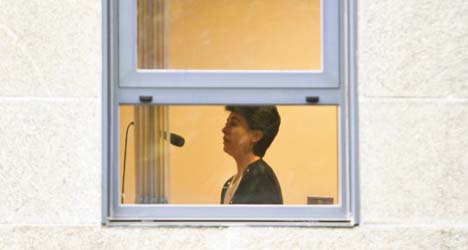The woman, Rosario Porto, was charged with “homicide, possible murder” while awaiting the results of toxicological tests on her daughter’s body, said a court in the northwestern Spanish city of Santiago de Compostela.
After a three-and-a-half-hour hearing, the judge ordered that Porto, a lawyer, be imprisoned without bail, the High Court of the Galicia region said in a written statement.
Her ex-husband, journalist Alfonso Basterra, 49, appeared in court shortly afterwards facing similar charges related to his daughter’s death, the court said.
The body of the girl, Asunta Yong Fang Basterra Porto, was discovered in the early hours of September 22 in woodlands near Santiago de Compostela, just hours after her parents had reported her missing.
Newspapers and television talk shows have devoted intense coverage to each turn of the case against the parents, who reportedly adopted their daughter in China when she was a baby.
On Thursday, the pair were shown on national television being led in handcuffs to their respective homes in the centre of Santiago de Compostela for police searches.
Small crowds of onlookers gathered, some hurling insults at the father and the mother, a Spanish citizen who acted as French honorary consul in the northwestern region of Galicia from 1996-2006.



 Please whitelist us to continue reading.
Please whitelist us to continue reading.
Member comments